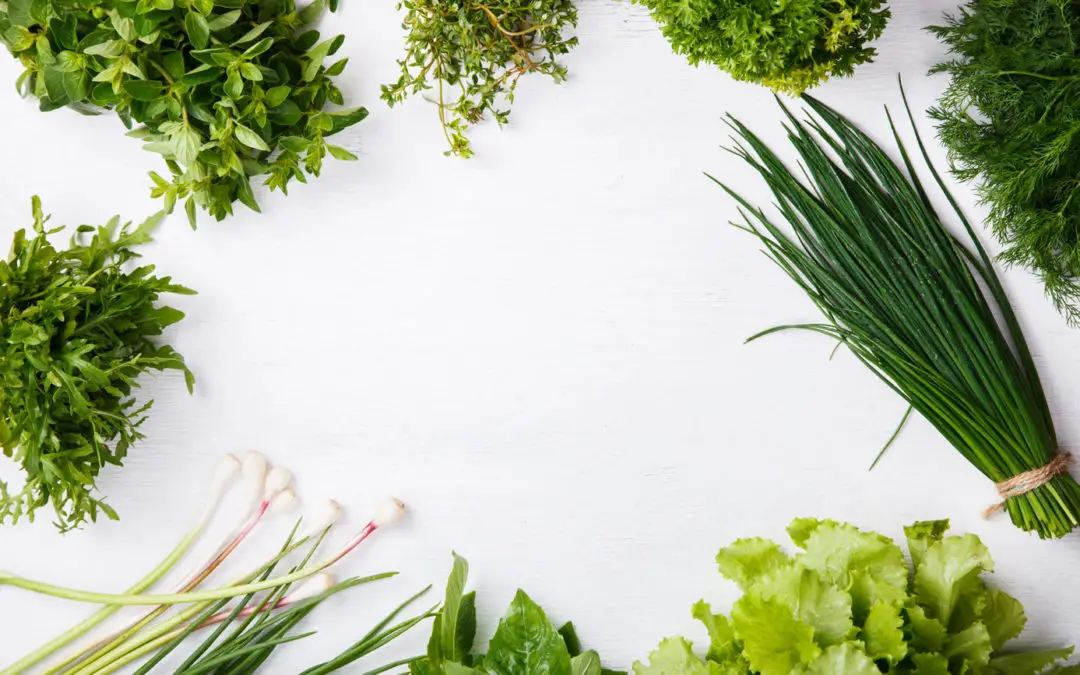Our planet is such an incredible place. It has naturally given us plants, flowers, and trees that provide food and medicine.
We live in an era where fabricated medicine and prescription drugs are the norms, but these are not the only approach to healing and staying healthy.
You get to decide what you place into your body on a daily basis.
There are choices that you can make that will help you to maintain a high-functioning immune system.
Why not create a healthy lifestyle based on ingredients sourced from nature?
We have all we need growing abundantly around us, we just need to remember how to tap into that natural medicine.
Our ancestors knew all about the power of plant medicine and herbal remedies, we just need to take some time to explore that knowledge.
And what better time than right now?
While we navigate the current uncertainty on our planet, we can gather our resources and remember the healing power of plants.
I want to share with you some of the most powerful, healing herbs, and spices that can help your body stay healthy, combat any viruses, inflammation, and infections.
All of these herbs and spices are easily available to buy and in some cases grow yourself.
1. Turmeric
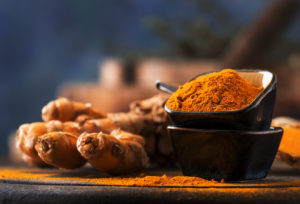
Turmeric is an important component of Ayurveda, the ancient Indian system of medicine and has been used for several thousand years. It is a bright orange-yellow root with incredible anti-inflammatory effects. Studies have suggested it can relieve arthritis, reduce the risk of cancer, heart disease, and Alzheimer’s as well as improve brain function.
Curcumin is the primary active compound in turmeric with medicinal properties. Scientific studies prove that curcumin helps fight oxidative damage, a key factor in aging and some diseases.
How to use it?
Dried, fresh, or in a supplement. Add to curries and rice dishes or sprinkle over salads or add to smoothies.
2. Ginger
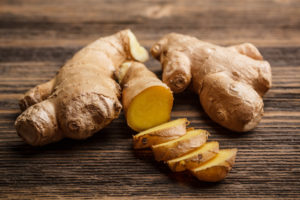
Ginger root is full of immune-boosting qualities. It’s anti-inflammatory and can treat nausea. Ginger originated in Southeast Asia centuries ago but is now grown in many countries worldwide. People often turn to ginger when they have a cold or sore throat as its compounds (sesquiterpenes) target cold viruses and can suppress coughing and ease throat pain.
How to use it?
Use it in soups and rice dishes, add it to a raw juice or hot tea with lemon.
3. Garlic
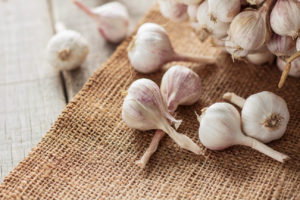
Garlic is a household staple and well-known for its pungent flavor and health benefits. All throughout history, garlic has been used for medicinal purposes. The Ancient Egyptians and Indian cultures are known to have used it. Garlic’s excellent health-boosting properties come from the compound allicin, which also gives it its strong smell.
Allicin gives garlic its powerful anti-fungal and antibacterial properties which are most potent when garlic is ingested raw and cut or crushed. It’s said to prevent colds and chest infections and generally boost your immune system against viruses and infection.
How to use it?
Chopped garlic can be added to pretty much any dish you make. Eat it raw, chopped finely over sliced tomatoes or cucumber, or mix it into hummus and other dips.
4. Cinnamon

A popular spice used often in baking, cinnamon is another highly immune-boosting ingredient to have in your kitchen. Modern science now confirms what the Ancient Egyptians knew about the medicinal qualities of this spice made from the inner bark of trees. There are two types of cinnamon: Ceylon cinnamon (or true cinnamon) and cassia cinnamon. The compound found in cinnamon is called cinnamaldehyde and is what is responsible for the wonderful health-giving properties of the spice.
Cinnamon is high in powerful antioxidants with anti-inflammatory effects, which may help lower your risk of disease. Cinnamon has also been shown to lower blood sugar levels, increase insulin sensitivity, giving it a powerful anti-diabetic effect.
How to use it?
Add it to muesli, smoothies, and baked goods or use it in couscous dishes for a Moroccan flavor.
5. Cayenne Pepper
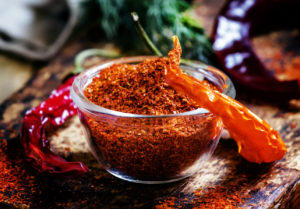
A form of chili pepper used to prepare spicy dishes, cayenne pepper has been around for millennia and used to help treat many health problems. Cayenne pepper contains capsaicin, which can reduce appetite, increase fat burning as well as boost your metabolism, and aid digestive health. These peppers have even been shown to boost your stomach’s defense against infections by increasing digestive fluid production and helping easy digestion.
How to use it?
Add a pinch of dried cayenne pepper to your dishes or slice it raw into salads (be careful as they are spicy).
6. Elderberry
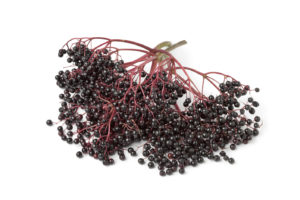
Elderberries from the elderberry bush have long been a traditional folk remedy for colds and viruses. Dating back thousands of years in Europe and North America, the berries and flowers can both be used to make syrups, supplements, teas, and tonics. The berries contain anthocyanidins, compounds that help a healthy immune system to thrive. They also have potent antiviral properties.
How to use it?
It’s best not to eat a large amount of the berries raw as they can cause a digestive upset, instead, cook them and make elderberry jam, syrup, tea, pie, or even wine or cordial. You can also purchase dried elderberries and make hot tea or syrup that way.
7. Echinacea
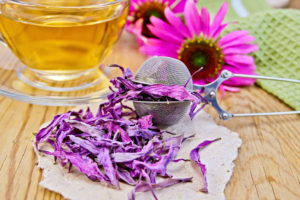
With its antifungal and antibacterial properties, the echinacea plant is an ideal companion in your kitchen. It strengthens and stimulates your immune system and can help beat viral infections and other illnesses.
How to use it?
You can drink echinacea tea or take it in a supplement form or a tincture.
8. Peppermint
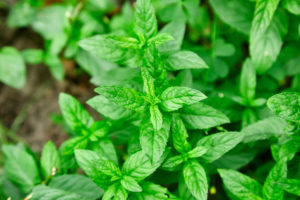
Peppermint has a history of medicinal use in traditional remedies and aromatherapy. It’s known for its ability to ease digestion and reduce nausea. It can also help those with symptoms of IBS (Irritable Bowel Syndrome) by relieving bloat and digestive pain. In aromatherapy, it’s been shown to help tackle symptoms of nausea.
How to use it?
Drink peppermint tea to aid digestion. Use peppermint essential oil to dab on your wrists or massage gently over your stomach.
The best thing is you can easily grow your own peppermint in a small container in your garden or in your kitchen.
9. Rosemary
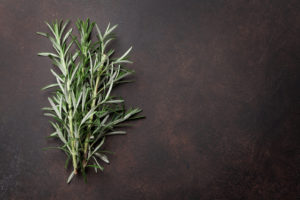
Rosemary contains an active ingredient called rosmarinic acid. It has anti-inflammatory effects that have been shown to help nasal congestion and suppress any allergy symptoms. Fresh rosemary also has therapeutic compounds and antioxidants that enhance memory, focus, and cognition.
How to use it?
Sprinkle into vegetable dishes, pair with chicken or lamb, and potatoes. Rosemary essential oil can also be used to stimulate focus and memory.
These are just some of the healing herbs and spices that you can use in your everyday cooking that are easy to source and simple to use. Try and incorporate two or three a week into new recipes and see how great you feel using natural remedies to boost your health! Of course, any recipes you may have please share in the comments.

